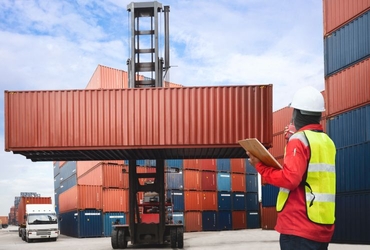
How hurricanes affect shipping and logistics



The wrath of hurricanes on shipping and logistics
For a few days early this September, the US Sunshine State saw neither sun nor shine, as Hurricane Irma bore through with a wrath that left even the most fervent of all storm chasers in awe. Cleanup operations began soon after. But this is something that’s expected to last a while – if not longer. On land, the cleanup is physical and emotional for some. But off land, companies continue to fight to regain some sort of logistical normality.
Precautions for hurricanes
Hurricane Irma was one of the five strongest ever hurricanes recorded in the Atlantic. Thanks to highly-sophisticated weather prediction technologies, warnings were sent out early. And given the severity of them, the precautions that were recommended were heeded. Shipping operations came to a halt, and ports all the way up to South Carolina suspected operations. Cruise liners including Carnival Corp and Royal Caribbean Lines canceled various sailings. All this, to avoid the wrath of mother nature.
It’s always better to be safe than sorry, and shipping operators that have the capacity to re-route ships away from dangers should definitely do so. But this comes with a considerable impact, financially. An 8,000 containership can consume up to 225 tons of fuel per day. For cruise ships, that number can be as high as 250. That said, even minimal rerouting can be costly on operators.
Logistical disruptions by hurricanes
Despite all precautions taken for Irma, the delay was nevertheless bound to cause disruptions. Not only to the ocean freight industry but to the logistics sector as a whole. And it has. Days after Irma passed, intermodal shippers continued to face delays for cargo that needed rail transportation through the southeastern US. Even industry giants such as Amazon had difficulties in keeping its word of two-day shipping to customers.
Keep in mind: The six major ports that closed as a result of Irma handle one of every six containers going in and out of North America. They also play a huge role in transporting petroleum, diesel, and jet fuel. That said, we can expect to see a severe rippling effect on supply chains.
“Anytime there a port closes, it means delays and having to re-route vessel. Without counting damages caused, the impact is rather significant even on regular logistics. This ranges from carriers omitting ports to not having cargo on their vessels and all the work that goes into rescheduling, to name a few. Everyone is losing time and money.”
- Klaus Lysdal, VP Sales & Operations, iContainers
Other inconveniences include ports having less cargo come through or finding themselves having to store extra cargo. Thankfully for shippers, many ports waived or reduced delay charges. Certain operators also stopped their demurrage & detention clocks as Irma neared and restarted them as ports began to re-open. But even then, shippers may still find themselves having to pay truckers additional drays, storage or perhaps make alternative plans to move their cargo through other ports.
Long-term effects of hurricanes
The damage on land is significant, and very much visible. But off land, the effects are also felt. Given the disruptions caused by the hurricanes, the shipping industry can expect effects to ripple on.
There’s no saying by how much, but the consensus among experts is that freight rates will definitely increase in the final quarter of 2017 and in 2018 as a result of the hurricanes. Given that Hurricanes Harvey and Irma crippled around 16% of the US refining capacity, it’s unlikely that diesel prices will fall anytime soon. That said, diesel fuel has gone up by almost $0.18 in the past fortnight. As this cost cascades down to shippers, they can expect to see an increase in freight costs of 1.5% to 2.5%.
“You can never predict what’s going to happen. But, I think it’s safe to say it will be very tight through the retail season. You’re going to see this continue into next year.”
- Troy Cooper, Chief Operating Officer, XPO Logistics
The worst is, however, still not over. Already, Hurricane Maria has swept through the Caribbean as Hurricane threatens the US East Coast. If this frequency keeps up, it may be the second most costly year for hurricane damage in nearly 40 years following a record 28 storms in the Atlantic in 2005, which includes Katrina.
Related Articles


